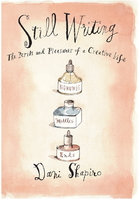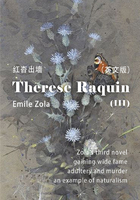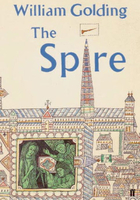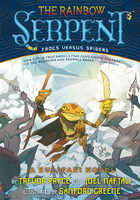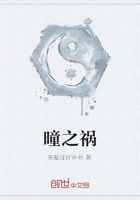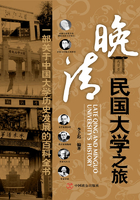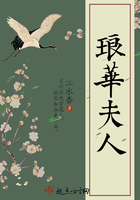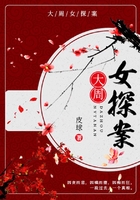CONTAINING STRANGE MATTER, ON WHICH MANY EVENTS IN THIS HISTORY MAY, FOR THEIR GOOD OR EVIL INFLUENCE, CHIEFLY DEPEND
But Mr Pecksniff came to town on business. Had he forgotten that? Was he always taking his pleasure with Todgers's jovial brood, unmindful of the serious demands, whatever they might be, upon his calm consideration? No.
Time and tide will wait for no man, saith the adage. But all men have to wait for time and tide. That tide which, taken at the flood, would lead Seth Pecksniff on to fortune, was marked down in the table, and about to flow. No idle Pecksniff lingered far inland, unmindful of the changes of the stream; but there, upon the water's edge, over his shoes already, stood the worthy creature, prepared to wallow in the very mud, so that it slid towards the quarter of his hope.
The trustfulness of his two fair daughters was beautiful indeed. They had that firm reliance on their parent's nature, which taught them to feel certain that in all he did he had his purpose straight and full before him. And that its noble end and object was himself, which almost of necessity included them, they knew. The devotion of these maids was perfect.
Their filial confidence was rendered the more touching, by their having no knowledge of their parent's real designs, in the present instance. All that they knew of his proceedings was, that every morning, after the early breakfast, he repaired to the post office and inquired for letters. That task performed, his business for the day was over; and he again relaxed, until the rising of another sun proclaimed the advent of another post.
This went on for four or five days. At length, one morning, Mr Pecksniff returned with a breathless rapidity, strange to observe in him, at other times so calm; and, seeking immediate speech with his daughters, shut himself up with them in private conference for two whole hours. Of all that passed in this period, only the following words of Mr Pecksniff's utterance are known:
'How he has come to change so very much (if it should turn out as I expect, that he has), we needn't stop to inquire. My dears, I have my thoughts upon the subject, but I will not impart them. It is enough that we will not be proud, resentful, or unforgiving. If he wants our friendship he shall have it. We know our duty, I hope!'
That same day at noon, an old gentleman alighted from a hackney-coach at the post-office, and, giving his name, inquired for a letter addressed to himself, and directed to be left till called for. It had been lying there some days. The superscription was in Mr Pecksniff's hand, and it was sealed with Mr Pecksniff's seal.
It was very short, containing indeed nothing more than an address 'with Mr Pecksniff's respectful, and (not withstanding what has passed) sincerely affectionate regards.' The old gentleman tore off the direction - scattering the rest in fragments to the winds - and giving it to the coachman, bade him drive as near that place as he could. In pursuance of these instructions he was driven to the Monument; where he again alighted, and dismissed the vehicle, and walked towards Todgers's.
Though the face, and form, and gait of this old man, and even his grip of the stout stick on which he leaned, were all expressive of a resolution not easily shaken, and a purpose (it matters little whether right or wrong, just now) such as in other days might have survived the rack, and had its strongest life in weakest death; still there were grains of hesitation in his mind, which made him now avoid the house he sought, and loiter to and fro in a gleam of sunlight, that brightened the little churchyard hard by. There may have been, in the presence of those idle heaps of dust among the busiest stir of life, something to increase his wavering; but there he walked, awakening the echoes as he paced up and down, until the church clock, striking the quarters for the second time since he had been there, roused him from his meditation. Shaking off his incertitude as the air parted with the sound of the bells, he walked rapidly to the house, and knocked at the door.
Mr Pecksniff was seated in the landlady's little room, and his visitor found him reading - by an accident; he apologised for it - an excellent theological work. There were cake and wine upon a little table - by another accident, for which he also apologised. Indeed he said, he had given his visitor up, and was about to partake of that simple refreshment with his children, when he knocked at the door.
'Your daughters are well?' said old Martin, laying down his hat and stick.
Mr Pecksniff endeavoured to conceal his agitation as a father when he answered Yes, they were. They were good girls, he said, very good. He would not venture to recommend Mr Chuzzlewit to take the easy-chair, or to keep out of the draught from the door. If he made any such suggestion, he would expose himself, he feared, to most unjust suspicion. He would, therefore, content himself with remarking that there was an easy-chair in the room, and that the door was far from being air-tight. This latter imperfection, he might perhaps venture to add, was not uncommonly to be met with in old houses.
The old man sat down in the easy-chair, and after a few moments' silence, said:
'In the first place, let me thank you for coming to London so promptly, at my almost unexplained request; I need scarcely add, at my cost.'
'At YOUR cost, my good sir!' cried Mr Pecksniff, in a tone of great surprise.
'It is not,' said Martin, waving his hand impatiently, 'my habit to put my - well! my relatives - to any personal expense to gratify my caprices.'
'Caprices, my good sir!' cried Mr Pecksniff
'That is scarcely the proper word either, in this instance,' said the old man. 'No. You are right.'
Mr Pecksniff was inwardly very much relieved to hear it, though he didn't at all know why.
'You are right,' repeated Martin. 'It is not a caprice. It is built up on reason, proof, and cool comparison. Caprices never are. Moreover, I am not a capricious man. I never was.'
'Most assuredly not,' said Mr Pecksniff.
'How do you know?' returned the other quickly. 'You are to begin to know it now. You are to test and prove it, in time to come. You and yours are to find that I can be constant, and am not to be diverted from my end. Do you hear?'
'Perfectly,' said Mr Pecksniff.
'I very much regret,' Martin resumed, looking steadily at him, and speaking in a slow and measured tone; 'I very much regret that you and I held such a conversation together, as that which passed between us at our last meeting. I very much regret that I laid open to you what were then my thoughts of you, so freely as I did. The intentions that I bear towards you now are of another kind; deserted by all in whom I have ever trusted; hoodwinked and beset by all who should help and sustain me; I fly to you for refuge. I confide in you to be my ally; to attach yourself to me by ties of Interest and Expectation' - he laid great stress upon these words, though Mr Pecksniff particularly begged him not to mention it; 'and to help me to visit the consequences of the very worst species of meanness, dissimulation, and subtlety, on the right heads.'
'My noble sir!' cried Mr Pecksniff, catching at his outstretched hand. 'And YOU regret the having harboured unjust thoughts of me! YOU with those grey hairs!'
'Regrets,' said Martin, 'are the natural property of grey hairs; and I enjoy, in common with all other men, at least my share of such inheritance. And so enough of that. I regret having been severed from you so long. If I had known you sooner, and sooner used you as you well deserve, I might have been a happier man.'
Mr Pecksniff looked up to the ceiling, and clasped his hands in rapture.
'Your daughters,' said Martin, after a short silence. 'I don't know them. Are they like you?'
'In the nose of my eldest and the chin of my youngest, Mr Chuzzlewit,' returned the widower, 'their sainted parent (not myself, their mother) lives again.'
'I don't mean in person,' said the old man. 'Morally, morally.'
''Tis not for me to say,' retorted Mr Pecksniff with a gentle smile. 'I have done my best, sir.'
'I could wish to see them,' said Martin; 'are they near at hand?'
They were, very near; for they had in fact been listening at the door from the beginning of this conversation until now, when they precipitately retired. Having wiped the signs of weakness from his eyes, and so given them time to get upstairs, Mr Pecksniff opened the door, and mildly cried in the passage,
'My own darlings, where are you?'
'Here, my dear pa!' replied the distant voice of Charity.
'Come down into the back parlour, if you please, my love,' said Mr Pecksniff, 'and bring your sister with you.'
'Yes, my dear pa,' cried Merry; and down they came directly (being all obedience), singing as they came.
Nothing could exceed the astonishment of the two Miss Pecksniffs when they found a stranger with their dear papa. Nothing could surpass their mute amazement when he said, 'My children, Mr Chuzzlewit!' But when he told them that Mr Chuzzlewit and he were friends, and that Mr Chuzzlewit had said such kind and tender words as pierced his very heart, the two Miss Pecksniffs cried with one accord, 'Thank Heaven for this!' and fell upon the old man's neck. And when they had embraced him with such fervour of affection that no words can describe it, they grouped themselves about his chair, and hung over him, as figuring to themselves no earthly joy like that of ministering to his wants, and crowding into the remainder of his life, the love they would have diffused over their whole existence, from infancy, if he - dear obdurate! - had but consented to receive the precious offering.
The old man looked attentively from one to the other, and then at Mr Pecksniff, several times.
'What,' he asked of Mr Pecksniff, happening to catch his eye in its descent; for until now it had been piously upraised, with something of that expression which the poetry of ages has attributed to a domestic bird, when breathing its last amid the ravages of an electric storm: 'What are their names?'
Mr Pecksniff told him, and added, rather hastily; his caluminators would have said, with a view to any testamentary thoughts that might be flitting through old Martin's mind; 'Perhaps, my dears, you had better write them down. Your humble autographs are of no value in themselves, but affection may prize them.'
'Affection,' said the old man, 'will expend itself on the living originals. Do not trouble yourselves, my girls, I shall not so easily forget you, Charity and Mercy, as to need such tokens of remembrance. Cousin!'
'Sir!' said Mr Pecksniff, with alacrity.
'Do you never sit down?'
'Why - yes - occasionally, sir,' said Mr Pecksniff, who had been standing all this time.
'Will you do so now?'
'Can you ask me,' returned Mr Pecksniff, slipping into a chair immediately, 'whether I will do anything that you desire?'
'You talk confidently,' said Martin, 'and you mean well; but I fear you don't know what an old man's humours are. You don't know what it is to be required to court his likings and dislikings; to adapt yourself to his prejudices; to do his bidding, be it what it may; to bear with his distrusts and jealousies; and always still be zealous in his service. When I remember how numerous these failings are in me, and judge of their occasional enormity by the injurious thoughts I lately entertained of you, I hardly dare to claim you for my friend.'
'My worthy sir,' returned his relative, 'how CAN you talk in such a painful strain! What was more natural than that you should make one slight mistake, when in all other respects you were so very correct, and have had such reason - such very sad and undeniable reason - to judge of every one about you in the worst light!'
'True,' replied the other. 'You are very lenient with me.'
'We always said, my girls and I,' cried Mr Pecksniff with increasing obsequiousness, 'that while we mourned the heaviness of our misfortune in being confounded with the base and mercenary, still we could not wonder at it. My dears, you remember?'
Oh vividly! A thousand times!
'We uttered no complaint,' said Mr Pecksniff. 'Occasionally we had the presumption to console ourselves with the remark that Truth would in the end prevail, and Virtue be triumphant; but not often. My loves, you recollect?'
Recollect! Could he doubt it! Dearest pa, what strange unnecessary questions!
'And when I saw you,' resumed Mr Pecksniff, with still greater deference, 'in the little, unassuming village where we take the liberty of dwelling, I said you were mistaken in me, my dear sir; that was all, I think?'
'No - not all,' said Martin, who had been sitting with his hand upon his brow for some time past, and now looked up again; 'you said much more, which, added to other circumstances that have come to my knowledge, opened my eyes. You spoke to me, disinterestedly, on behalf of - I needn't name him. You know whom I mean.'
Trouble was expressed in Mr Pecksniff's visage, as he pressed his hot hands together, and replied, with humility, 'Quite disinterestedly, sir, I assure you.'
'I know it,' said old Martin, in his quiet way. 'I am sure of it. I said so. It was disinterested too, in you, to draw that herd of harpies off from me, and be their victim yourself; most other men would have suffered them to display themselves in all their rapacity, and would have striven to rise, by contrast, in my estimation. You felt for me, and drew them off, for which I owe you many thanks. Although I left the place, I know what passed behind my back, you see!'
'You amaze me, sir!' cried Mr Pecksniff; which was true enough.
'My knowledge of your proceedings,' said the old man, does not stop at this. You have a new inmate in your house.'
'Yes, sir,' rejoined the architect, 'I have.'
'He must quit it' said Martin.
'For - for yours?' asked Mr Pecksniff, with a quavering mildness.
'For any shelter he can find,' the old man answered. 'He has deceived you.'
'I hope not' said Mr Pecksniff, eagerly. 'I trust not. I have been extremely well disposed towards that young man. I hope it cannot be shown that he has forfeited all claim to my protection. Deceit - deceit, my dear Mr Chuzzlewit, would be final. I should hold myself bound, on proof of deceit, to renounce him instantly.'
The old man glanced at both his fair supporters, but especially at Miss Mercy, whom, indeed, he looked full in the face, with a greater demonstration of interest than had yet appeared in his features. His gaze again encountered Mr Pecksniff, as he said, composedly:
'Of course you know that he has made his matrimonial choice?'
'Oh dear!' cried Mr Pecksniff, rubbing his hair up very stiff upon his head, and staring wildly at his daughters. 'This is becoming tremendous!'
'You know the fact?' repeated Martin
'Surely not without his grandfather's consent and approbation my dear sir!' cried Mr Pecksniff. 'Don't tell me that. For the honour of human nature, say you're not about to tell me that!'
'I thought he had suppressed it,' said the old man.
The indignation felt by Mr Pecksniff at this terrible disclosure, was only to be equalled by the kindling anger of his daughters. What! Had they taken to their hearth and home a secretly contracted serpent; a crocodile, who had made a furtive offer of his hand; an imposition on society; a bankrupt bachelor with no effects, trading with the spinster world on false pretences! And oh, to think that he should have disobeyed and practised on that sweet, that venerable gentleman, whose name he bore; that kind and tender guardian; his more than father - to say nothing at all of mother - horrible, horrible! To turn him out with ignominy would be treatment much too good. Was there nothing else that could be done to him? Had he incurred no legal pains and penalties? Could it be that the statutes of the land were so remiss as to have affixed no punishment to such delinquency? Monster; how basely had they been deceived!
'I am glad to find you second me so warmly,' said the old man holding up his hand to stay the torrent of their wrath. 'I will not deny that it is a pleasure to me to find you so full of zeal. We will consider that topic as disposed of.'
'No, my dear sir,' cried Mr Pecksniff, 'not as disposed of, until I have purged my house of this pollution.'
'That will follow,' said the old man, 'in its own time. I look upon that as done.'
'You are very good, sir,' answered Mr Pecksniff, shaking his hand. 'You do me honour. You MAY look upon it as done, I assure you.'
'There is another topic,' said Martin, 'on which I hope you will assist me. You remember Mary, cousin?'
'The young lady that I mentioned to you, my dears, as having interested me so very much,' remarked Mr Pecksniff. 'Excuse my interrupting you, sir.'
'I told you her history?' said the old man.
'Which I also mentioned, you will recollect, my dears,' cried Mr Pecksniff. 'Silly girls, Mr Chuzzlewit - quite moved by it, they were!"
'Why, look now!' said Martin, evidently pleased; 'I feared I should have had to urge her case upon you, and ask you to regard her favourably for my sake. But I find you have no jealousies! Well! You have no cause for any, to be sure. She has nothing to gain from me, my dears, and she knows it.'
The two Miss Pecksniffs murmured their approval of this wise arrangement, and their cordial sympathy with its interesting object.
'If I could have anticipated what has come to pass between us four,' said the old man thoughfully; 'but it is too late to think of that. You would receive her courteously, young ladies, and be kind to her, if need were?'
Where was the orphan whom the two Miss Pecksniffs would not have cherished in their sisterly bosom! But when that orphan was commended to their care by one on whom the dammed-up love of years was gushing forth, what exhaustless stores of pure affection yearned to expend themselves upon her!
An interval ensued, during which Mr Chuzzlewit, in an absent frame of mind, sat gazing at the ground, without uttering a word; and as it was plain that he had no desire to be interrupted in his meditations, Mr Pecksniff and his daughters were profoundly silent also. During the whole of the foregoing dialogue, he had borne his part with a cold, passionless promptitude, as though he had learned and painfully rehearsed it all a hundred times. Even when his expressions were warmest and his language most encouraging, he had retained the same manner, without the least abatement. But now there was a keener brightness in his eye, and more expression in his voice, as he said, awakening from his thoughtful mood:
'You know what will be said of this? Have you reflected?'
'Said of what, my dear sir?' Mr Pecksniff asked.
'Of this new understanding between us.'
Mr Pecksniff looked benevolently sagacious, and at the same time far above all earthly misconstruction, as he shook his head, and observed that a great many things would be said of it, no doubt.
'A great many,' rejoined the old man. 'Some will say that I dote in my old age; that illness has shaken me; that I have lost all strength of mind, and have grown childish. You can bear that?'
Mr Pecksniff answered that it would be dreadfully hard to bear, but he thought he could, if he made a great effort.
'Others will say - I speak of disappointed, angry people only - that you have lied and fawned, and wormed yourself through dirty ways into my favour; by such concessions and such crooked deeds, such meannesses and vile endurances, as nothing could repay; no, not the legacy of half the world we live in. You can bear that?'
Mr Pecksniff made reply that this would be also very hard to bear, as reflecting, in some degree, on the discernment of Mr Chuzzlewit. Still he had a modest confidence that he could sustain the calumny, with the help of a good conscience, and that gentleman's friendship.
'With the great mass of slanderers,' said old Martin, leaning back in his chair, 'the tale, as I clearly foresee, will run thus: That to mark my contempt for the rabble whom I despised, I chose from among them the very worst, and made him do my will, and pampered and enriched him at the cost of all the rest. That, after casting about for the means of a punishment which should rankle in the bosoms of these kites the most, and strike into their gall, I devised this scheme at a time when the last link in the chain of grateful love and duty, that held me to my race, was roughly snapped asunder; roughly, for I loved him well; roughly, for I had ever put my trust in his affection; roughly, for that he broke it when I loved him most - God help me! - and he without a pang could throw me off, while I clung about his heart! Now,' said the old man, dismissing this passionate outburst as suddenly as he had yielded to it, 'is your mind made up to bear this likewise? Lay your account with having it to bear, and put no trust in being set right by me.'
'My dear Mr Chuzzlewit,' cried Pecksniff in an ecstasy, 'for such a man as you have shown yourself to be this day; for a man so injured, yet so very humane; for a man so - I am at a loss what precise term to use - yet at the same time so remarkably - I don't know how to express my meaning; for such a man as I have described, I hope it is no presumption to say that I, and I am sure I may add my children also (my dears, we perfectly agree in this, I think?), would bear anything whatever!'
'Enough,' said Martin. 'You can charge no consequences on me. When do you retire home?'
'Whenever you please, my dear sir. To-night if you desire it.'
'I desire nothing,' returned the old man, 'that is unreasonable. Such a request would be. Will you be ready to return at the end of this week?'
The very time of all others that Mr Pecksniff would have suggested if it had been left to him to make his own choice. As to his daughters - the words, 'Let us be at home on Saturday, dear pa,' were actually upon their lips.
'Your expenses, cousin,' said Martin, taking a folded slip of paper from his pocketbook, 'may possibly exceed that amount. If so, let me know the balance that I owe you, when we next meet. It would be useless if I told you where I live just now; indeed, I have no fixed abode. When I have, you shall know it. You and your daughters may expect to see me before long; in the meantime I need not tell you that we keep our own confidence. What you will do when you get home is understood between us. Give me no account of it at any time; and never refer to it in any way. I ask that as a favour. I am commonly a man of few words, cousin; and all that need be said just now is said, I think.'
'One glass of wine - one morsel of this homely cake?' cried Mr Pecksniff, venturing to detain him. 'My dears -?!'
The sisters flew to wait upon him.
'Poor girls!' said Mr Pecksniff. 'You will excuse their agitation, my dear sir. They are made up of feeling. A bad commodity to go through the world with, Mr Chuzzlewit! My youngest daughter is almost as much of a woman as my eldest, is she not, sir?'
'Which IS the youngest?' asked the old man.
'Mercy, by five years,' said Mr Pecksniff. 'We sometimes venture to consider her rather a fine figure, sir. Speaking as an artist, I may perhaps be permitted to suggest that its outline is graceful and correct. I am naturally,' said Mr Pecksniff, drying his hands upon his handkerchief, and looking anxiously in his cousin's face at almost every word, 'proud, if I may use the expression, to have a daughter who is constructed on the best models.'
'She seems to have a lively disposition,' observed Martin.
'Dear me!' said Mr Pecksniff. 'That is quite remarkable. You have defined her character, my dear sir, as correctly as if you had known her from her birth. She HAS a lively disposition. I assure you, my dear sir, that in our unpretending home her gaiety is delightful.'
'No doubt,' returned the old man.
'Charity, upon the other hand,' said Mr Pecksniff, 'is remarkable for strong sense, and for rather a deep tone of sentiment, if the partiality of a father may be excused in saying so. A wonderful affection between them, my dear sir! Allow me to drink your health. Bless you!'
'I little thought,' retorted Martin, 'but a month ago, that I should be breaking bread and pouring wine with you. I drink to you.'
Not at all abashed by the extraordinary abruptness with which these latter words were spoken, Mr Pecksniff thanked him devoutly.
'Now let me go,' said Martin, putting down the wine when he had merely touched it with his lips. 'My dears, good morning!'
But this distant form of farewell was by no means tender enough for the yearnings of the young ladies, who again embraced him with all their hearts - with all their arms at any rate - to which parting caresses their new-found friend submitted with a better grace than might have been expected from one who, not a moment before, had pledged their parent in such a very uncomfortable manner. These endearments terminated, he took a hasty leave of Mr Pecksniff and withdrew, followed to the door by both father and daughters, who stood there kissing their hands and beaming with affection until he disappeared; though, by the way, he never once looked back, after he had crossed the threshold.
When they returned into the house, and were again alone in Mrs Todgers's room, the two young ladies exhibited an unusual amount of gaiety; insomuch that they clapped their hands, and laughed, and looked with roguish aspects and a bantering air upon their dear papa. This conduct was so very unaccountable, that Mr Pecksniff (being singularly grave himself) could scarcely choose but ask them what it meant; and took them to task, in his gentle manner, for yielding to such light emotions.
'If it was possible to divine any cause for this merriment, even the most remote,' he said, 'I should not reprove you. But when you can have none whatever - oh, really, really!'
This admonition had so little effect on Mercy, that she was obliged to hold her handkerchief before her rosy lips, and to throw herself back in her chair, with every demonstration of extreme amusement; which want of duty so offended Mr Pecksniff that he reproved her in set terms, and gave her his parental advice to correct herself in solitude and contemplation. But at that juncture they were disturbed by the sound of voices in dispute; and as it proceeded from the next room, the subject matter of the altercation quickly reached their ears.
'I don't care that! Mrs Todgers,' said the young gentleman who had been the youngest gentleman in company on the day of the festival; 'I don't care THAT, ma'am,' said he, snapping his fingers, 'for Jinkins. Don't suppose I do.'
'I am quite certain you don't, sir,' replied Mrs Todgers. 'You have too independent a spirit, I know, to yield to anybody. And quite right. There is no reason why you should give way to any gentleman. Everybody must be well aware of that.'
'I should think no more of admitting daylight into the fellow,' said the youngest gentleman, in a desperate voice, 'than if he was a bulldog.'
Mrs Todgers did not stop to inquire whether, as a matter of principle, there was any particular reason for admitting daylight even into a bulldog, otherwise than by the natural channel of his eyes, but she seemed to wring her hands, and she moaned.
'Let him be careful,' said the youngest gentleman. 'I give him warning. No man shall step between me and the current of my vengeance. I know a Cove -' he used that familiar epithet in his agitation but corrected himself by adding, 'a gentleman of property, I mean - who practices with a pair of pistols (fellows too) of his own. If I am driven to borrow 'em, and to send at friend to Jinkins, a tragedy will get into the papers. That's all.'
Again Mrs Todgers moaned.
'I have borne this long enough,' said the youngest gentleman but now my soul rebels against it, and I won't stand it any longer. I left home originally, because I had that within me which wouldn't be domineered over by a sister; and do you think I'm going to be put down by HIM? No.'
'It is very wrong in Mr Jinkins; I know it is perfectly inexcusable in Mr Jinkins, if he intends it,' observed Mrs Todgers
'If he intends it!' cried the youngest gentleman. 'Don't he interrupt and contradict me on every occasion? Does he ever fail to interpose himself between me and anything or anybody that he sees I have set my mind upon? Does he make a point of always pretending to forget me, when he's pouring out the beer? Does he make bragging remarks about his razors, and insulting allusions to people who have no necessity to shave more than once a week? But let him look out! He'll find himself shaved, pretty close, before long, and so I tell him.'
The young gentleman was mistaken in this closing sentence, inasmuch as he never told it to Jinkins, but always to Mrs Todgers.
'However,' he said, 'these are not proper subjects for ladies' ears. All I've got to say to you, Mrs Todgers, is, a week's notice from next Saturday. The same house can't contain that miscreant and me any longer. If we get over the intermediate time without bloodshed, you may think yourself pretty fortunate. I don't myself expect we shall.'
'Dear, dear!' cried Mrs Todgers, 'what would I have given to have prevented this? To lose you, sir, would be like losing the house's right-hand. So popular as you are among the gentlemen; so generally looked up to; and so much liked! I do hope you'll think better of it; if on nobody else's account, on mine.'
'There's Jinkins,' said the youngest gentleman, moodily. 'Your favourite. He'll console you, and the gentlemen too, for the loss of twenty such as me. I'm not understood in this house. I never have been.'
'Don't run away with that opinion, sir!' cried Mrs Todgers, with a show of honest indignation. 'Don't make such a charge as that against the establishment, I must beg of you. It is not so bad as that comes to, sir. Make any remark you please against the gentlemen, or against me; but don't say you're not understood in this house.'
'I'm not treated as if I was,' said the youngest gentleman.
'There you make a great mistake, sir,' returned Mrs Todgers, in the same strain. 'As many of the gentlemen and I have often said, you are too sensitive. That's where it is. You are of too susceptible a nature; it's in your spirit.'
The young gentleman coughed.
'And as,' said Mrs Todgers, 'as to Mr Jinkins, I must beg of you, if we ARE to part, to understand that I don't abet Mr Jinkins by any means. Far from it. I could wish that Mr Jinkins would take a lower tone in this establishment, and would not be the means of raising differences between me and gentlemen that I can much less bear to part with than I could with Mr Jinkins. Mr Jinkins is not such a boarder, sir,' added Mrs Todgers, 'that all considerations of private feeling and respect give way before him. Quite the contrary, I assure you.'
The young gentleman was so much mollified by these and similar speeches on the part of Mrs Todgers, that he and that lady gradually changed positions; so that she became the injured party, and he was understood to be the injurer; but in a complimentary, not in an offensive sense; his cruel conduct being attributable to his exalted nature, and to that alone. So, in the end, the young gentleman withdrew his notice, and assured Mrs Todgers of his unalterable regard; and having done so, went back to business.
'Goodness me, Miss Pecksniffs!' cried that lady, as she came into the back room, and sat wearily down, with her basket on her knees, and her hands folded upon it, 'what a trial of temper it is to keep a house like this! You must have heard most of what has just passed. Now did you ever hear the like?'
'Never!' said the two Miss Pecksniffs.
'Of all the ridiculous young fellows that ever I had to deal with,' resumed Mrs Todgers, 'that is the most ridiculous and unreasonable. Mr Jinkins is hard upon him sometimes, but not half as hard as he deserves. To mention such a gentleman as Mr Jinkins in the same breath with HIM - you know it's too much! And yet he's as jealous of him, bless you, as if he was his equal.'
The young ladies were greatly entertained by Mrs Todgers's account, no less than with certain anecdotes illustrative of the youngest gentleman's character, which she went on to tell them. But Mr Pecksniff looked quite stern and angry; and when she had concluded, said in a solemn voice:
'Pray, Mrs Todgers, if I may inquire, what does that young gentleman contribute towards the support of these premises?'
'Why, sir, for what HE has, he pays about eighteen shillings a week!' said Mrs Todgers.
'Eighteen shillings a week!' repeated Mr Pecksniff.
'Taking one week with another; as near that as possible,' said Mrs Todgers.
Mr Pecksniff rose from his chair, folded his arms, looked at her, and shook his head.
'And do you mean to say, ma'am - is it possible, Mrs Todgers - that for such a miserable consideration as eighteen shillings a week, a female of your understanding can so far demean herself as to wear a double face, even for an instant?'
'I am forced to keep things on the square if I can, sir,' faltered Mrs Todgers. 'I must preserve peace among them, and keep my connection together, if possible, Mr Pecksniff. The profit is very small.'
'The profit!' cried that gentleman, laying great stress upon the word. 'The profit, Mrs Todgers! You amaze me!'
He was so severe, that Mrs Todgers shed tears.
'The profit!' repeated Mr pecksniff. 'The profit of dissimulation! To worship the golden calf of Baal, for eighteen shillings a week!'
'Don't in your own goodness be too hard upon me, Mr Pecksniff,' cried Mrs Todgers, taking out her handkerchief.
'Oh Calf, Calf!' cried Mr Pecksniff mournfully. 'Oh, Baal, Baal! oh my friend, Mrs Todgers! To barter away that precious jewel, self-esteem, and cringe to any mortal creature - for eighteen shillings a week!'
He was so subdued and overcome by the reflection, that he immediately took down his hat from its peg in the passage, and went out for a walk, to compose his feelings. Anybody passing him in the street might have known him for a good man at first sight; for his whole figure teemed with a consciousness of the moral homily he had read to Mrs Todgers.
Eighteen shillings a week! Just, most just, thy censure, upright Pecksniff! Had it been for the sake of a ribbon, star, or garter; sleeves of lawn, a great man's smile, a seat in parliament, a tap upon the shoulder from a courtly sword; a place, a party, or a thriving lie, or eighteen thousand pounds, or even eighteen hundred; - but to worship the golden calf for eighteen shillings a week! oh pitiful, pitiful!

